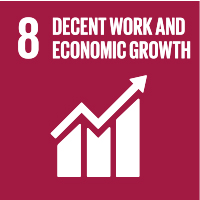WEBINAR: Transitioning youth into the labour market: promises and pitfalls of microcredentials
There is no doubt that microcredentials are disrupting today’s learning and training systems. They offer a flexible alternative to traditional qualifications, allowing individuals to develop and validate skills attained in formal, non-formal, or informal learning environments, and demonstrate competencies. As microcredentials gain traction, they are increasingly seen as a tool for individuals to showcase their skills and for employers to assess workforce readiness.
The question is: Do the completion of microcredentials support youth to transition into the labour market?
RSVP:
Online registration
description
According to UNESCO, a microcredential is a record of a focused learning achievement verifying what the learner knows, understands or can do; includes an assessment based on clearly defined standards and is awarded by a trusted provider; has stand-alone value and may also contribute to or complement other microcredentials or “miacrocredentials”, including through recognition of prior learning; and meets the standards required by relevant quality assurance.
There is no doubt that microcredentials are disrupting today’s learning and training systems. They offer a flexible alternative to traditional qualifications, allowing individuals to develop and validate skills attained in formal, non-formal, or informal learning environments, and demonstrate competencies. As microcredentials gain traction, they are increasingly seen as a tool for individuals to showcase their skills and for employers to assess workforce readiness.
The question is: Do the completion of microcredentials support youth to transition into the labour market?
There are many views on this question; views that are accompanied by a wide range of promises and pitfalls which may not be easy to substantiate with empirical evidence.
In order to respond to this shifting landscape, the ILO, in partnership with UNICEF, commissioned a study titled “Microcredentials for Youth and Work”. As noted in the foreword, the report is based on four illustrative cases from around the world, showing that:
….the usage of microcredentials by a sample of governments, companies, international organizations, and non-profit organizations, and sheds light on good practices in developing and deploying microcredentials. We [ILO and UNICEF] hope this report will serve as a valuable resource for policymakers and other stakeholders that consider introducing microcredentials in their skills development toolkit.
This YouthForesight webinar will bring together practitioners, industry leaders and youth to present the report findings including regional and country-level examples and address critical questions about the promises and pitfalls of microcredentials.
REGISTER HERE
OBJECTIVES
- To discuss the promises and pitfalls of microcredentials in enhancing employability and career development for youth.
- To hear from youth whether the completion of microcredentials have supported them to transition into the labour market.
- To take stock of the evolution of microcredentials in this fast-changing landscape, including the impact of generative AI on new forms of credentialling.
WHO CAN ATTEND
The event is open to anyone interested in global and regional employment trends and intergenerational dynamics. Attendees will have the opportunity to share their own experiences and insights through polls and moderated questions to the panellists.
DETAILS
- Date: 03 April, 2025
- Time: 8:00 AM EST | 2:00 PM Geneva
- Duration: 1 hour
REGISTER NOW





